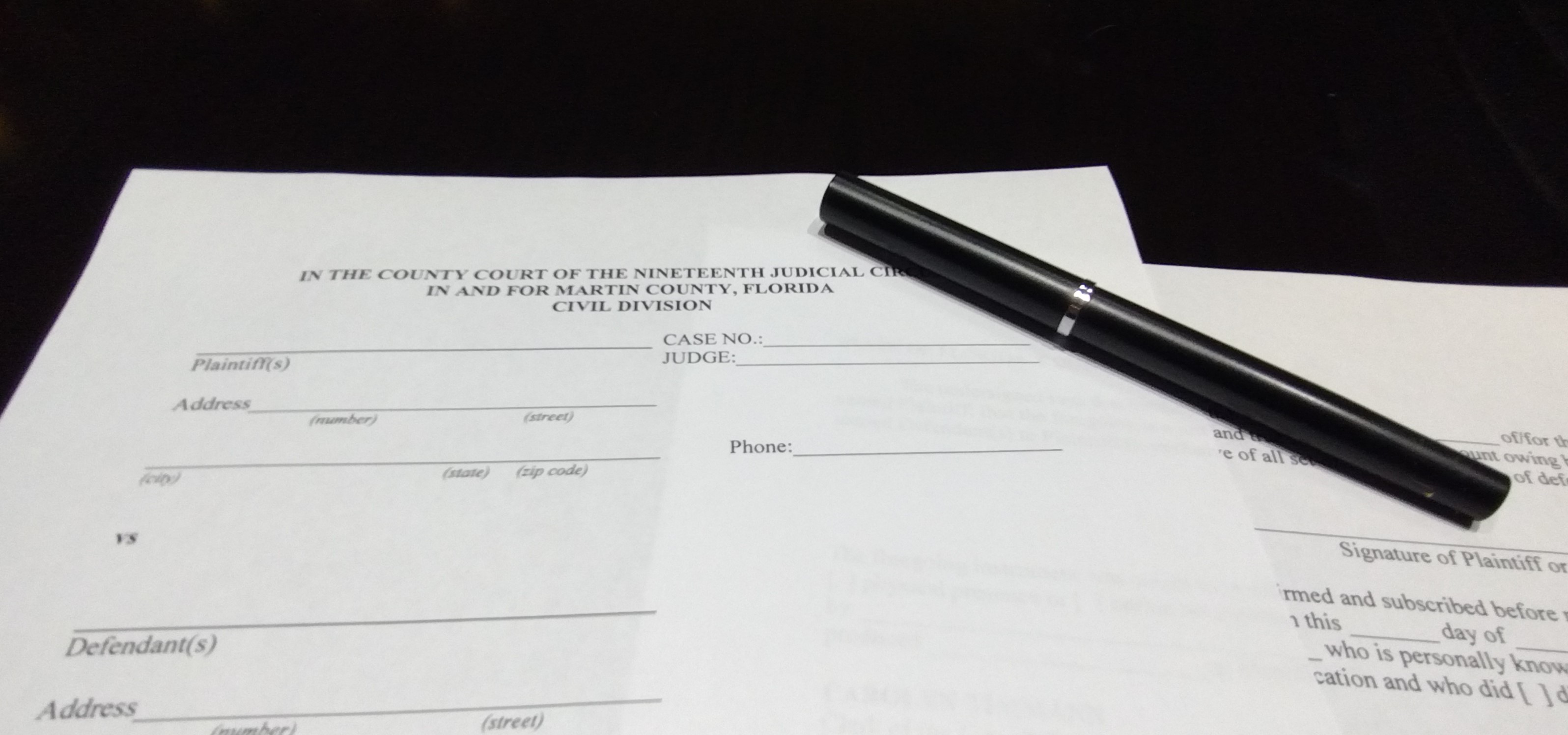Small Claims Court in Martin County, Florida: A Guide for Residents

There are three different divisions of civil courts: Small Claims, County civil court and Circuit civil court and each has different jurisdictional limits depending on oh the amount of damages alleged to be involved.
Jurisdictional limits
- Small claims: Civil actions under $8,000 are heard in small claims court.
- County civil court: Civil actions between $8,000 and $50,000 are heard in county civil court.
- Circuit civil court: Civil actions over $50,000 are heard in circuit civil court.
If you're a resident of Martin County, Florida, and find yourself in a minor legal dispute, the Small Claims Court might be your best option for resolution. Here's what you need to know about how it works:
What is Small Claims Court for?
As shown above, Small Claims Court in Martin County is designed to settle relatively minor legal disputes where the dollar amount involved is $8,000 or less, excluding costs, interest, and attorney fees. It's often referred to as "the people's court" because it's designed to be accessible to regular citizens without using expensive lawyers to represent them. Plaintiffs and Defendants are expected to represent themselves.
Filing a Claim
To initiate a Small Claims case in Martin County you must be at least 18 years old and file a Statement of Claim with the Martin County Clerk of Court. Forms for this called “small claims packets” are available for free to be printed online and can also be picked up at the courthouse for $3.00. Click this link for the Martin County Small Claims website. Click this link to go to the small claims Document Center for some Martin County small claims forms and for more information. Most Florida counties have similar information on the clerk’s websites.
The person filing the claim is called the “plaintiff” while the person being sued is called the “defendant.” The plaintiff can file the small claims action in person or by mail and, although the filing fee is non-refundable, the Plaintiff may be able to recover those fees from the defendant if the case is won.
The Fees to file a claim vary based on the claim amount. Claims for less than $100 require a $55 filing fee, Claims for $100 to $500 have an $80 filing fee, Claims from $500.01–$2,500 cost $175 to file and claims over $2,500 cost $300 to file. Additionally, the clerk charges $10.00 to issue the summons.
The Court Process
Once you've filed your claim:
- Serve the Defendant. The clerk will assign a pre-trial hearing date (the “summons”) and return it to the plaintiff. The plaintiff must then “serve” a copy of the complaint with an original summons to the defendant(s). Instructions on how to do this are in the small claims packet but, typically, the sheriff must be hired to serve the documents on the defendant. Private process servers can also serve the summons and claim but are usually more expensive than the Sheriff. A plaintiff cannot serve the documents themselves. The Sheriff typically charges $40.00 to serve the summons and complaint.
- Attend the pre-trial conference. This is an opportunity to settle the case without going to trial
- Trial. If no agreement is reached at the pre-trial hearing, the judge will set the trial date.
If your case goes to trial:
Whether you are the defendant or the plaintiff, you will be required to gather all relevant documents and evidence to support your claim and execute an agreed pre-trial statement signed by both the defendant and plaintiff narrowing the issues for trial and listing all witnesses and exhibits. If an agreed statement cannot be reached, both plaintiff and defendant must file their own pre-trial statements.
Subpoena any witnesses who can help prove your case. This is a similar process as serving the summons and claim. You must obtain a subpoena from the clerk for each witness you intend to have testify for you at trial and serve that witness by using the sheriff or a private process server. If you do not, and your witness does not show up at the trial, you will be required to continue without the witness. If the witness was properly subpoenaed and fails to attend, the judge will have discretion to compel the witness to testify or provide other remedies for you.
Be prepared to explain your case, present your evidence to the judge,and ask questions of the other party. You may be asked at the beginning, end, or both, of the case to summarize your arguments for the judge. Trial
After the Trial
If the judge decides in your favor, you'll receive a Final Judgment. This does not always occure immediately. It may take a few days. However, winning a judgment doesn't guarantee payment. You may need to take additional legal steps to collect.
Remember, while the plaintiff and defendant both have the right to represent themselves in Small Claims Court, it's always in your best interest to consult an attorney for legal advice, especially if your claim is complex.
Small Claims Court in Martin County provides a straightforward process for resolving minor legal disputes. By understanding how it works, you can better navigate this system and seek resolution for your legal issues.